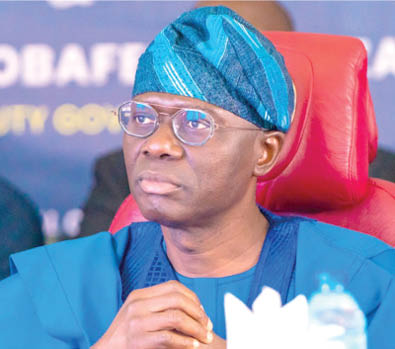The Lagos State Governor, Babajide Sanwo-Olu, says the state is fully complying with the Local Government autonomy already and as such shouldn’t be dragged to court alongside 35 other states.
The federal government had filed a suit at the Supreme Court against the 36 state governors over the LG autonomy.
In a suit marked SC/CV/343/2024, the federal government, through attorney-general of the federation (AGF) Lateef Fagbemi, urged the apex court to issue an order, prohibiting state governors from arbitrary and unlawful dissolution of democratically elected local government leaders.
The AGF sued the 36 state governors through their respective state attorney generals, with the court fixing Thursday, May 30 for hearing.
But Sanwo-Olu said Lagos State should have been left out of the legal action instituted by the Federal Government against Governors at the Supreme Court.
Reinstatement of Emir Sanusi done in Kano’s best interest –Gov’t
Emirship tussle: Kano Dep Gov retracts allegation against Ribadu
To Sanwo-Olu, it was a legal anomaly for the Federal Government to join Lagos in the Supreme Court matter, decades after the local governments in the State had been enjoying full autonomy.
The governor spoke at the on-going Justice Reform Summit organised by Lagos State Judiciary with the theme: “Enhancing the Administration of Justice for Economic Growth, Investment Protection and Security in Lagos.”
Sanwo-Olu, who spoke in support of the suit, however, said the Attorney General of the Federation should have identified those that were not in compliance with the law before filing a blanket lawsuit against all states.
He said: “It is interesting to read the news that the Honorable Minister of Justice and Attorney General of the Federation has sued all the 36 states because Governors did not give autonomy to the third tier of government. The only mistake, which I am going to tell our Attorney General, is that some of us are in compliance.
“The Attorney General should have done his due diligence to identify which states are not in compliance, so that we don’t sue all the 36 states together. You can determine which states are not violating the Constitution. If it is three, four or five states that are in compliance, then you can sue the 31 states violating autonomy of the local governments. That is part of the back work that we need to do.”
Sanwo-Olu said the judicial reform must remain on the agenda in a functional society in order to improve administration of the justice system and make the court the last hope of the common man.
The governor said the judiciary in Lagos had remained a beacon in protecting the rule of law and setting good examples for other jurisdictions in dispensation of justice. But he challenged judges and law officers to change the status quo in order to raise the standard of the justice system.
Drawing a parallel with Singapore, a fishing village with environmental similarities with Lagos, Sanwo-Olu said Singapore’s faith in rule of law and fairness transformed the efficiency of the country’s justice system, leading to the country’s rapid economic growth and prosperity.
He said: “Just like Lagos, Singapore has no resources. Singapore is what it is today because of Ease of Doing Business. It takes less than 30 minutes to register a business in Singapore, which makes it surpass many countries in ease of doing business. Singapore has one of the best judiciary system in the world; they have quick turnaround time in mediation and dispute resolution.”
Sanwo-Olu said Lagos needed a strong judicial system to attain all its investment potential, while promoting transparency and accountability. The Governor urged the Bench and the Bar to collaborate to promote an efficient justice system.
Chief Justice of Nigeria (CJN), Justice Kayode Ariwoola, represented Justice Iyabode Yerima of the Supreme Court, hailed Lagos judicial system for being “a forerunner” in justice development, stressing that other jurisdictions usually borrowed from examples set by Lagos.
The CJN listed some of landmark examples set by Lagos judiciary in the justice system to include Administration of Criminal Justice laws, which after implementation, set the template for the designing of Criminal Justice Act at the National Assembly.
Fagbemi was represented by Mr. Fernandez Marcos-Obiene, said robust and transparent reforms embarked on by Lagos in the justice system had promoted economic growth, pledging that the Federal Government would continue to provide platforms for reforms that would improve public trust in the judiciary.

 Join Daily Trust WhatsApp Community For Quick Access To News and Happenings Around You.
Join Daily Trust WhatsApp Community For Quick Access To News and Happenings Around You.


